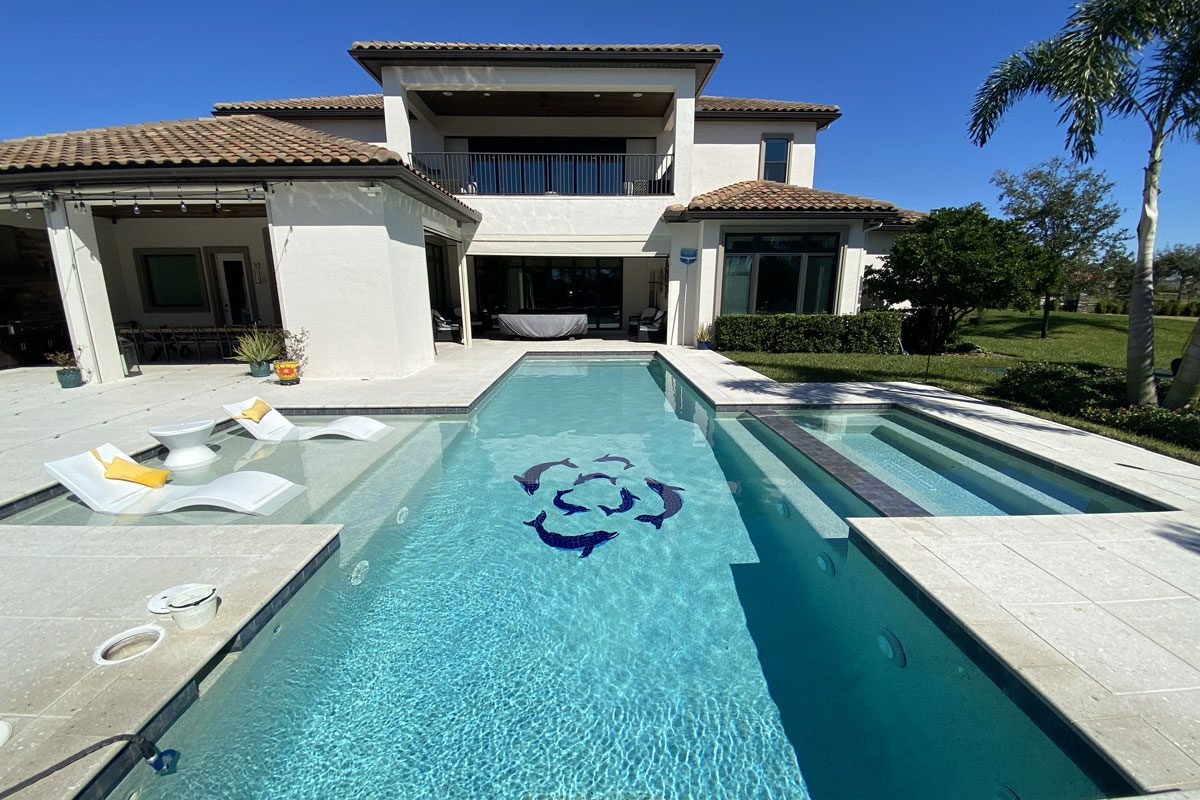Tampa is one of the top cities in the US to have residential In-Ground Pools. In this blog post, we’ll explore some of the common problems home inspectors often encounter during in-ground pool inspections.
What is a In-Ground Pool Inspection and Why Does it Matter?
An In-Ground Pool Inspection is a visual inspection of the pool surfaces and pool equipment. It’s also an operational inspection of the pool equipment.
To fully experience the long-term upside of having a pool, a watchful eye and regular maintenance is critical. While a beautiful pool can enhance the value of a property, it can also harbor hidden problems that may not be immediately obvious to the untrained eye.
An In-Ground Pool Inspection ensures pool safety for everyone and can prevent costly repairs in the future. By knowing the basic guidelines and being proactive, a pool owner can stay a step ahead while warding off potential headaches.
How to inspect and detect problems with In-Ground Pools.
Structural and mechanical issues can affect the safety, functionality and longevity of the pool, making it crucial for both buyers and sellers to be aware of potential concerns.
These include the pool’s structural integrity, the condition of the pool deck and coping, the functionality of the filtration system, the cleanliness of the water, the presence of leaks or plumbing issues, the safety features such as fencing and alarms, and the overall maintenance of the pool and its equipment.
Here’s a list of potential problems inspectors often encounter:
1) The pool plaster or pebble finish old and worn
2) The pool light is not working
3) Pool chemical imbalance of water chenistry, causing scaling
4) Pool coping and pool deck seperation and cracking
5) Pool water level low and clarity is cloudy
6) Pool skimmer blockage and weir door missing
7) Pool cleaning system (suction, sweep and in-floor vacuum system) not working
8) Main drain grates not Florida Code Compliant
9) Fence or another barrier around the outer perimeter of the pool not Florida Code Compliant
10) Pool curculation pump making a loud whining noise indicating worn or damaged bearings
11) Pool filter leaking or filter is dirty. Pool filter gauge is broken
12) Pool equipment plumbing is leaking
13) Pool gas heater or heat pump is not working. Solar heat panels are leaking
14) Pool eqipment and pool cage are not bonded
15) Pool pump does not have a ground-fault circuit interrupter breaker
16) No ground-fault circuit interrupter at pool equipment
Tips and Reminders for In-Ground Pool Maintenance:
By knowing the basic guidelines and being proactive, a pool owner can mantain and service a health pool. Maintaining an in-ground pool is a rewarding responsibility that ensures your oasis remains a source of relaxation and enjoyment for years to come. Proper maintenance not only keeps the water sparkling and inviting but also extends the lifespan of pool equipment and surfaces.
Closing.
In conclusion, a comprehensive home inspection is vital for identifying and addressing common problems found with in-ground pools. Maintaining a pool requires regular attention and care to ensure it remains clean, safe, and inviting for swimmers. Here are the key takeaways for maintaining a pool effectively:
Regular Cleaning: Skim the surface, vacuum the bottom, and brush the walls of the pool to remove debris and prevent buildup.
Monitor Water Chemistry: Test the water regularly and adjust pH, chlorine, and other chemical levels to maintain proper balance and prevent algae growth and bacterial contamination.
Shock the Pool: Periodically shock the pool to oxidize contaminants and maintain water clarity.
Maintain Filtration System: Clean or backwash the filter regularly to ensure efficient filtration and replace filter media as needed.
Check and Maintain Equipment: Inspect and maintain pool equipment such as pumps, filters, heaters, and chlorinators to ensure proper functionality and prevent breakdowns.
Winterize the Pool: Prepare the pool for winter by lowering the water level, draining plumbing lines, adding winterizing chemicals, and covering the pool to protect it from freezing temperatures and debris.
Monitor Pool Circulation: Ensure proper water circulation to distribute chemicals evenly and prevent stagnation.
Keep Pool Surroundings Clean: Maintain a clean pool area by removing debris and trimming landscaping to prevent debris from entering the water.
Address Repairs Promptly: Address any signs of damage or malfunction promptly to prevent further issues and costly repairs.
Educate Yourself: Stay informed about proper pool maintenance techniques, water chemistry principles, and safety guidelines to effectively care for your pool.
By following these key takeaways, pool owners can ensure their pool remains a clean, safe, and enjoyable environment for swimming and relaxation. Regular maintenance helps preserve the pool’s beauty and functionality while enhancing the overall swimming experience for everyone.

